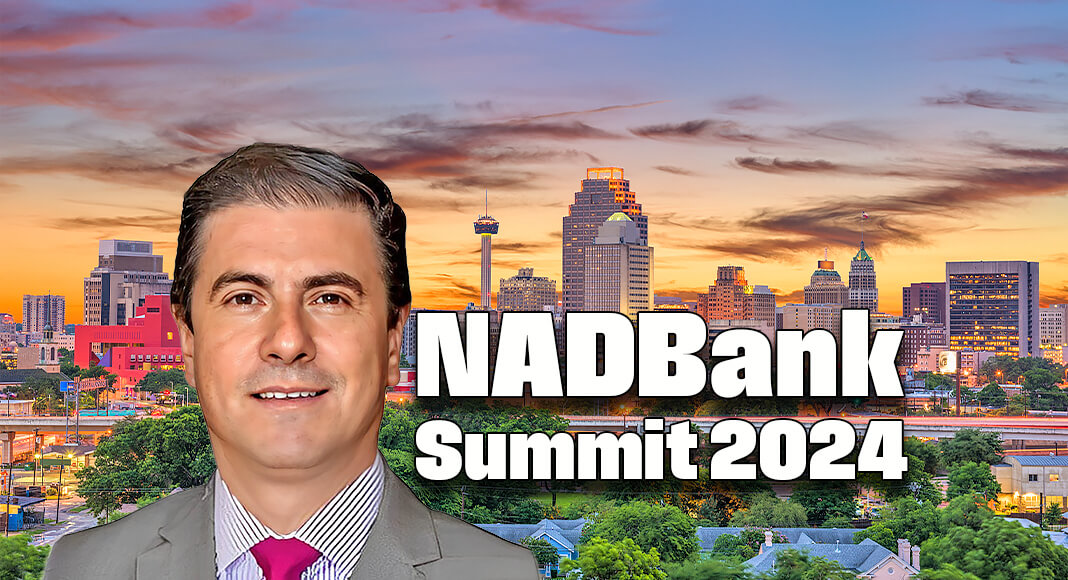
Texas Border Business
By Roberto Hugo González
The NADBank Summit 2024, held on August 29-30 in San Antonio, Texas, convened thought leaders, policymakers, and business executives to address environmental challenges and explore sustainable infrastructure development for the U.S.-Mexico border region. The two-day event was a crucial platform for stakeholders from both nations to share insights and strategies to foster a sustainable economy, strongly emphasizing innovative environmental preservation methods.
Gerónimo Gutiérrez Fernández, the former Ambassador of Mexico to the United States (2017-2018), set the tone for the summit with a reflection on the fundamental role of NADBank in the U.S.-Mexico relationship. “It’s great to be here with all of you,” Gutiérrez said. “One of the most rewarding periods in my professional career has been working at the North American Development Bank, an extraordinary group of people, professionals from both sides, from Mexico and the United States.” He emphasized that NADBank is “one of the best-kept secrets of the relationship,” highlighting its achievements and potential in fostering bilateral cooperation.
Gutiérrez also spoke on the historical phases of the U.S.-Mexico relationship, noting that the partnership has evolved through various stages marked by conflict and cooperation. He pointed out that institutions like NADBank play a crucial role in stabilizing and strengthening the relationship, especially during challenging times. “They’re essential because they stabilize the relationship, especially in hard times. They provide perspective to their overall relationship, and they help with follow-up,” he explained.
During his remarks, Gutiérrez outlined the four major phases in U.S.-Mexico relations, each characterized by distinct dynamics and challenges. He noted that the relationship has been tested by events ranging from the Cold War to the implementation of NAFTA and more recent shifts under the Trump administration. “Trump changes that for two reasons,” Gutiérrez said, referring to the uncertainty brought by shifting policies. “One is for the first time after 25 years, we sort of put in doubt the principle of shared responsibility…and the second one, after 25 years of officials, businesspeople everywhere in the U.S. and Mexico saying, we are great trade partners…you suddenly have the president of the United States go out and say, this is the worst deal ever for America.”
Despite these challenges, Gutiérrez emphasized the resilience of the U.S.-Mexico partnership. “Our notion and relationship have been extremely resilient because even when we were close to losing the trade relationship and many others, we have kept it going,” he remarked, underscoring the strength and adaptability of bilateral ties.
The summit also featured insights on NADBank’s future role in continuing to support sustainable development and binational cooperation. Gerry Schwebel, Executive Vice President of IBC Bank, as moderator of the session, highlighted NADBank’s critical function in solidifying the U.S.-Mexico relationship through practical solutions. “Institutions like the NADBank…are really a tool and a mechanism to solidify, strengthen, not weaken, but strengthen the relationship between our countries by finding solutions,” Schwebel stated.
Gutiérrez discussed the potential evolution of NADBank’s role, noting its adaptability and capacity for growth. “I think the NADBank has also gone through three phases,” he explained. “The first one was just the establishment; then it went through consolidation, and now it’s in a stage where it’s fully operational with a capital increase that allows it to do much more.” He pointed out that discussions continue about the bank’s geographic focus and potential to address broader regional issues beyond the immediate border.
Antonio Garza, former U.S. Ambassador to Mexico (2002-2009), provided a historical perspective on NADBank’s contributions, from its early focus on water issues to its current engagement with sustainability and energy. “If you look at the last 30 years…the early years were all about water. Anytime you build capacity along the border or in this region, you build trade capacity,” Garza said. He noted that while the bank’s role has expanded, the fundamental challenges of water and energy remain central to its mission. “While the general environment is very pro-growth, the geopolitical scene will not change…So, the bank continues to have a role, of course, but instead of just water, sustainability, or the future, it has to do all three in a way that builds capacity.”
This summit session concluded with a call to action for continued cooperation and innovative solutions to shared challenges. As Gutiérrez aptly put it, “We must be careful not to allow that [negative dynamics] to happen to the relationship. And that’s my second takeaway.” His remarks underlined the importance of vigilance and proactive engagement in maintaining a healthy and productive U.S.-Mexico partnership.
The NADBank Summit 2024 highlighted the essential role of binational institutions in fostering cooperation and addressing shared challenges. Through insightful discussions and an honest approach, the summit reinforced the importance of continued collaboration and innovation in building a sustainable future for the U.S.-Mexico border region. As participants emphasized, the strength of the U.S.-Mexico relationship lies in its resilience and the shared commitment to finding common ground for the benefit of both nations.
See related stories:














